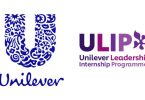
Mercy Corps Nigeria
Mercy Corps is a leading global organization powered by the belief that a better world is possible. In disaster, in hardship, in more than 40 countries around the world, we collaborate to put bold solutions into action – helping people triumph over adversity and build stronger communities from within, now and for the future. In Nigeria, Mercy Corps works in 13 states within the key thematic areas of humanitarian response, conflict mitigation and adolescent girls’ empowerment.
We are recruiting to fill the position below:
Job Title: Lead Consultant – Review and Development of the Maternal Infant and Young Child Nutrition (MIYCN) Training Package in Nigeria
Location: Borno
Duration: 12 weeks
Background
- The provision of adequate nutrition during infancy and early childhood is a basic requirement for the development and promotion of optimum growth, health, and behaviour of the child. Adequate nutrition is defined as the intake and utilization of enough energy and nutrients to maintain the wellbeing, health, and productivity of an individual, in this case, the child.
- The period of birth to 2 years of age is recognized as a critical period during which adequate nutrition should be provided for the child to achieve optimum development and full potential.
- Malnutrition is recognized as a global problem, which, besides weakening the immune system and worsening illnesses, is the underlying cause of more than half the deaths of children less than five years of age. Of these deaths, 20% are associated with severe and 80% with mild and moderate forms of malnutrition.
- Well over two-thirds of malnutrition-related deaths occur in the first year of life and are often associated with inappropriate feeding practices.
- Adequate food intake and healthy nutritional practices are the foundation blocks for a healthy and productive nation. The scourge of malnutrition which manifests as Under-nutrition, Over-nutrition, and micronutrient deficiencies is more severe among the most vulnerable groups of infants, children, adolescents, and pregnant and lactating women. This slows survival, cognitive and physical growth, academic performance, economic growth and perpetuates poverty including recurrences of morbidity and mortality; thereby reducing economic advancement of nations by at least 8% due to direct productivity losses and indirect losses from impaired cognition and schooling outcome
- In Nigeria, malnutrition is widespread, for example, 41% of all children less than five years of age are stunted, 7% are wasted and 23% are underweight. The causes of malnutrition in Nigeria are many and complex. The immediate causes of malnutrition in the first two years of life are inappropriate breastfeeding and complementary feeding practices coupled with high rates of infections.
- According to the NDHS 2018 28.7% of children under 6 months are exclusively breastfed. In addition, 22% of Nigerian infants are given complementary foods too early and they are often of poor nutritional value, mostly inadequate in terms of energy, protein, and micronutrients such as iron, zinc, iodine, and vitamin A.
- The frequency of feeding is usually low, while the quantities given are less than that required for the ages of the children.
- The National Policy on Maternal Infant and Young Child Nutrition (MIYCN) in Nigeria serves as a framework for harmonized MIYCN programming in Nigeria to enable the Federal, State, and LGAs to deliver, strengthen and sustain Maternal Infant and Young Child Nutrition Feeding in accordance with government obligation in revitalizing commitment towards the protection, promotion, and support of optimal maternal infant and young child nutrition.
- Evidence from the Lancet series showed that in the first 1000 days of life from pregnancy to 2 years, 90% coverage of 10 direct nutrition interventions could reduce chronic malnutrition by 20%, mortality by 15%, and the prevalence of Severe Acute Malnutrition by 60%.
- In Nigeria there is an enabling policy environment in which Maternal Infant and Young Child Nutrition practices have been prioritized in the National Strategic Plan of Action for Nutrition (NSPAN) which was developed in 2013 and reviewed in 2021, as well as the National MIYCN Policy, Strategy, and Guideline which was also reviewed last year. Nevertheless, Nigeria is still experiencing low progress in implementing large-scale Maternal Infant and Young Child Nutrition programs.
- The MIYCN Training Package was developed in 2012 by Strengthening Partnerships, Results and Innovation in Nutrition Globally (SPRING) to facilitate health workers to provide effective MIYCN counselling services to mothers, fathers, and other caregivers.
- The counselling cards cover a range of topics including breastfeeding, complementary feeding, maternal nutrition, antenatal care, hygiene, immunizations, and special health conditions.
- The overall goal of the National Policy on Maternal Infant and Young Child Nutrition in Nigeria is to ensure the optimal growth, protection, and development of the Nigerian child from birth to the first five years of life.
Objectives of the Assignment
- The objective of this consultancy assignment is to review and update the Infant and Young Child Feeding (IYCF) Training Package to reflect the latest evidence and guidance both nationally and globally.
The consultant will work under the supervision of the FMoH nutrition division to:
- Review the existing Infant and Young Child Feeding Training Package in Nigeria in light of recently developed MIYCN policy, strategy, and guidelines at national and global level.
- Conduct a desk review of evidence on global and national best practices in MIYCN
- Facilitate stakeholders’ technical meetings to provide feedback and input on the Consultants’ initial outline for an updated version of the training package.
- Collate inputs/comments from the stakeholders’ meetings to produce a Zero or first Draft and circulate it to Stakeholders within 2 weeks of the meeting.
- Facilitate Finalization and Validation Meetings of the draft Training Package.
Expected Outputs / Deliverables
The consultant will be expected to deliver the following outputs:
- A proposed outline for the revision of the training package
- An inception report finalizing the technical approach for delivering the assignment.
- The Revised MIYCN Training Package; (IYCF Brochures, Counselling Cards, Key Messages, Participant Manual, Trainers Manual).
- A final report and a PowerPoint presentation to summarize it.
Required Qualifications
The consultant must possess the following qualifications:
- Master’s Degree in Public Health Nutrition preferred. Other closely related fields will be considered.
- Extensive knowledge of existing Maternal Infant and Young Child Nutrition policy and guidelines
- At least ten years of relevant work experience in Maternal Infant and Young Child Nutrition, including applied/clinical experience.
- Previous experience in developing Policies, Strategies, Guidelines, and Training Packages or documents is preferred
- Ability to write clearly and succinctly in English and to prepare effective PowerPoint presentations.
- Familiarity with analytical tools and ability to translate theoretical concepts into practical approaches for operational work
- Ability to effectively work with others and communicate in a multi-cultural environment,
- Previous experience with the development of National protocols and operational guidelines and integration within Nigerian health systems preferred
- Confident workshop facilitator and ability to work independently and meet deadlines
- Excellent presentation skills and competency.
Application Closing Date
12th July, 2022.
Method of Application
Interested and qualified candidates should send their CV & Quote of Work, Copy of relevant work experience in Maternal Infant and Young Child Nutrition, including applied / clinical experience and Copy of Relevant Degree to: hbuba@mercycorps.org using the Job Title as the subject of the email.






